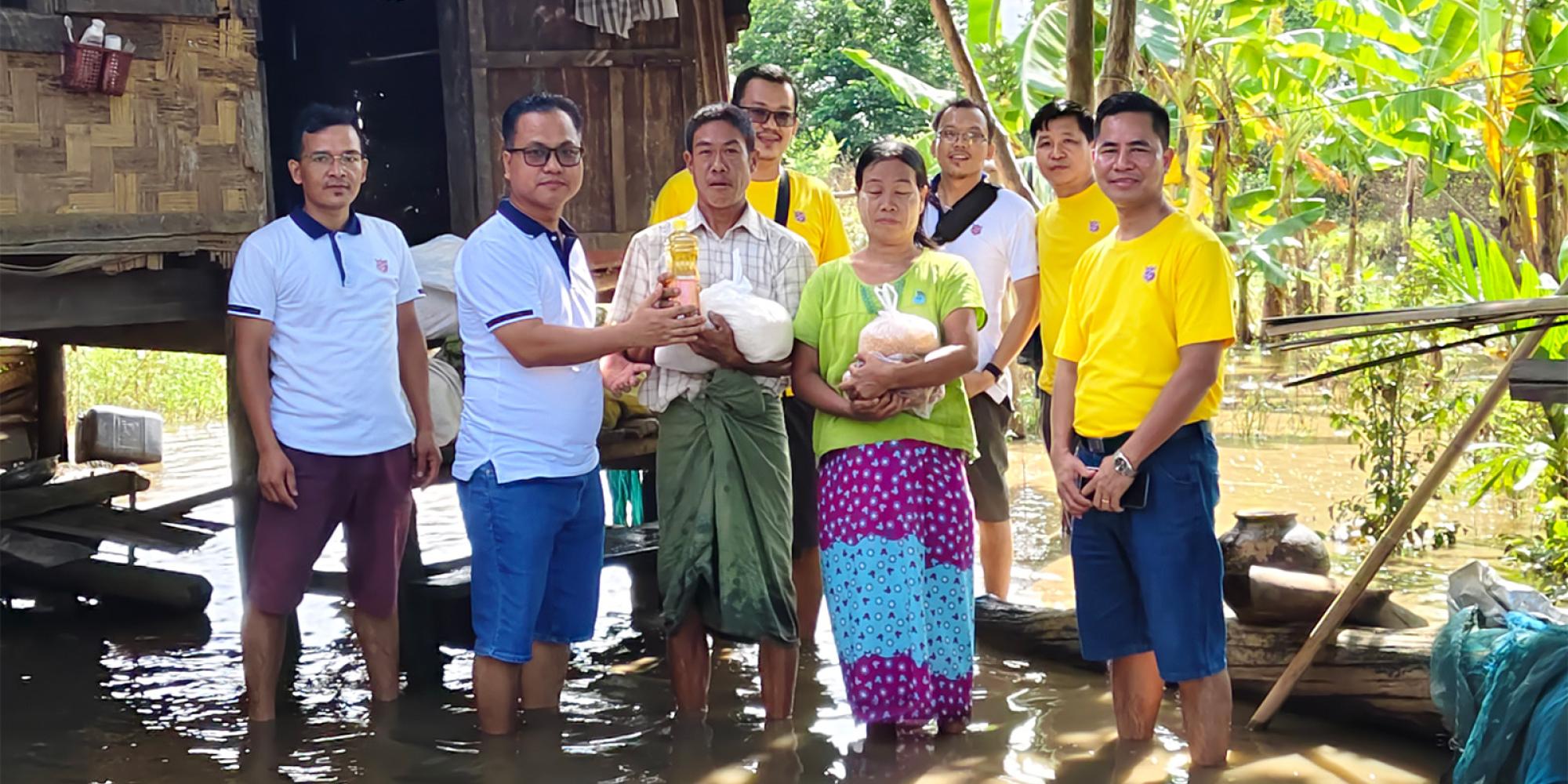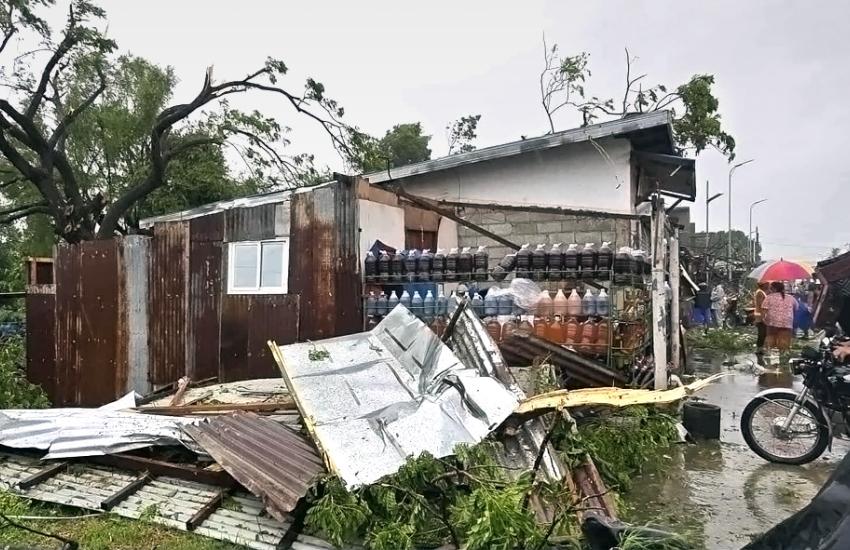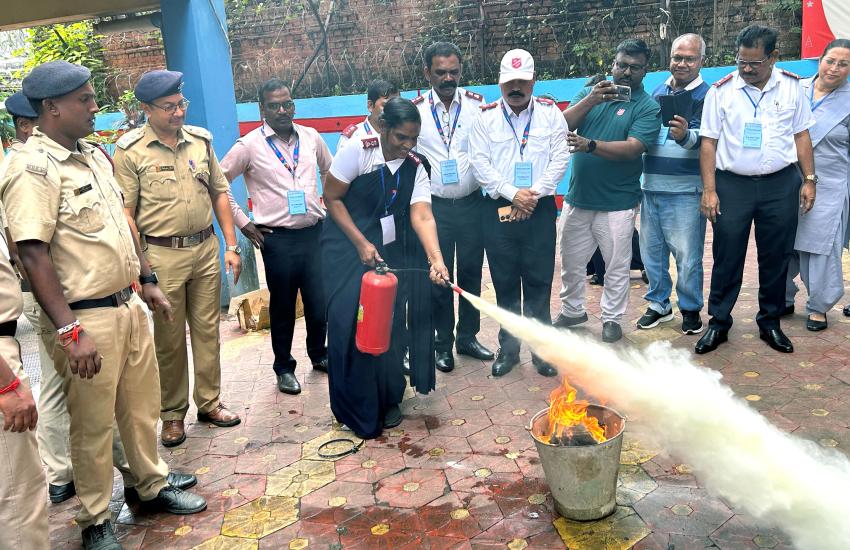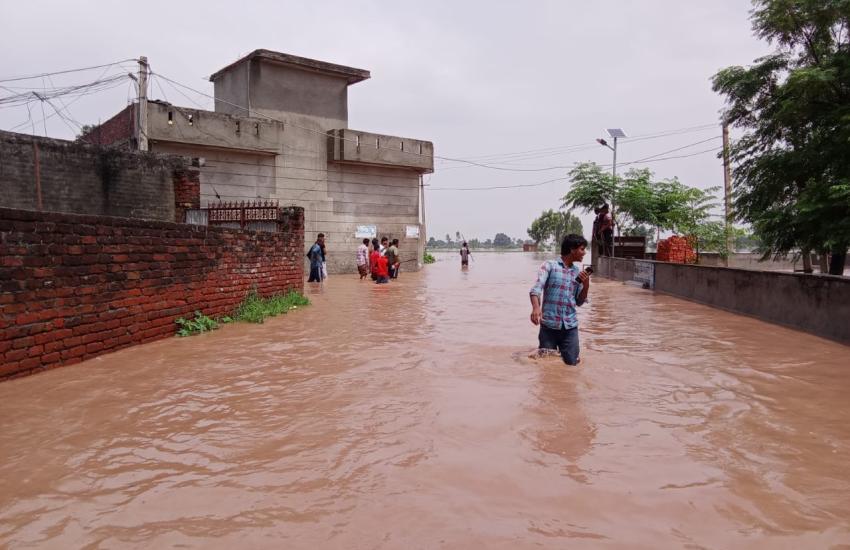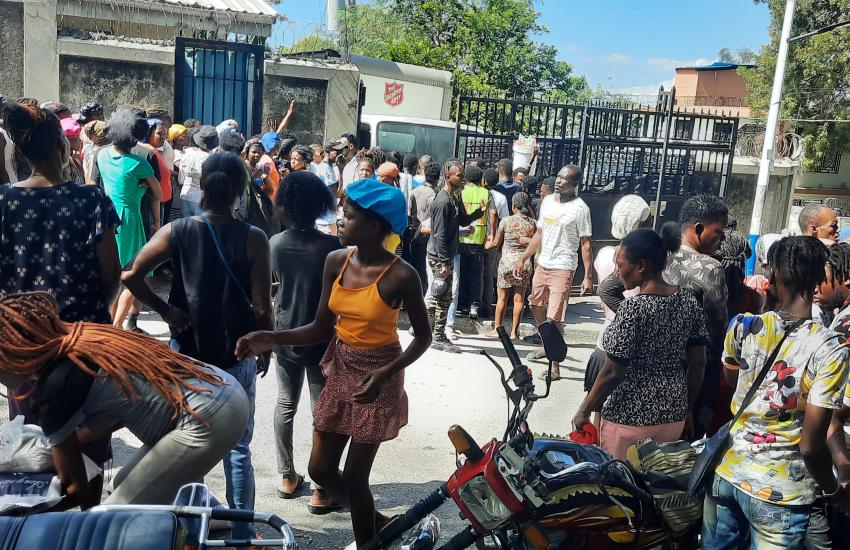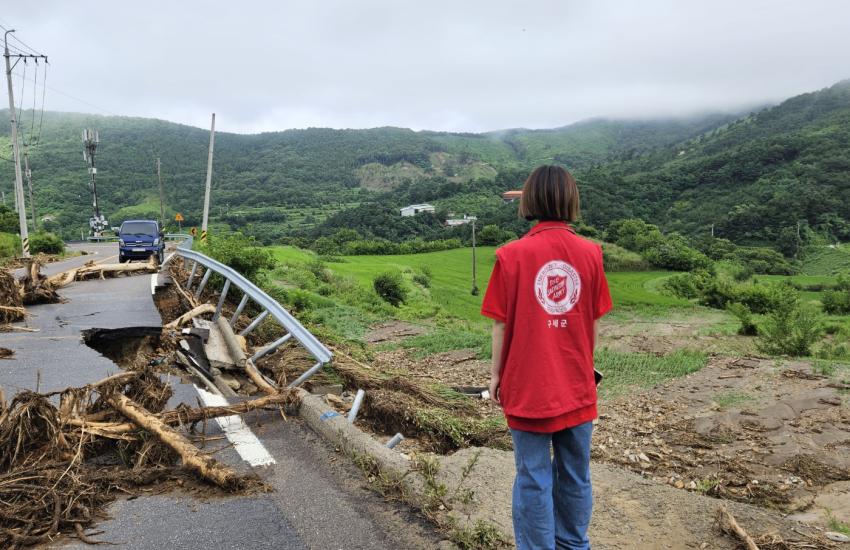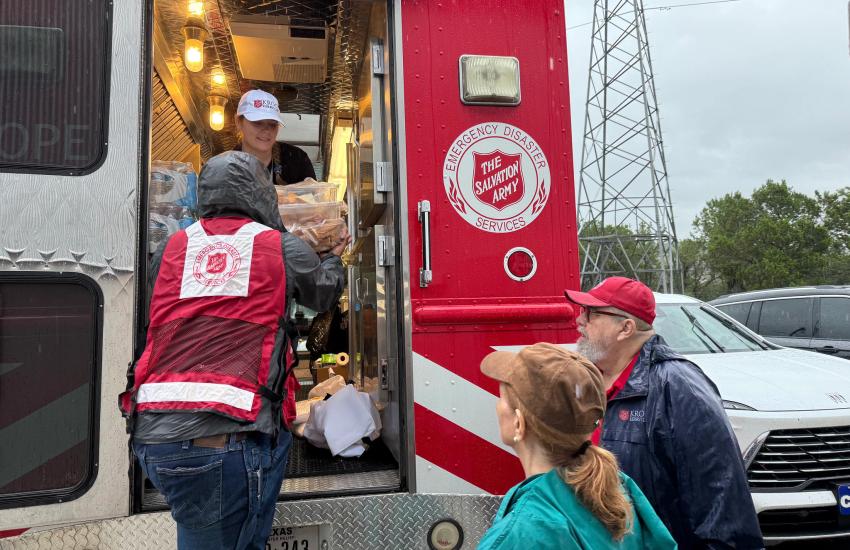Early in September 2024, the people of Myanmar were subjected to floods caused by heavy monsoon rains and the remnants of Typhoon Yagi.
According to the United Nations Office for the Coordination of Humanitarian Affairs (OCHA), more than 300 deaths and nearly 100 injuries have been reported.
The Salvation Army in Myanmar is assisting 600 families affected by the floods by providing food parcels, bedding, drinking water and nutritional support.
The ongoing flooding in nine states and regions affected nearly 890,000 people, including an estimated 270,000 children. In response, The Salvation Army is actively supporting some of the most heavily impacted areas and communities, focusing on the Central District, which includes Ye Ni and Nay Pyi Taw townships, Taungoo and the southern district of Bago.
Floods and landslides have severely damaged homes, livelihoods and essential infrastructure, including health facilities, schools and bridges.
Delivering essential help to communities in Myanmar
The Salvation Army is delivering essential food parcels to 600 families until December. Each parcel contains a generous 20 kg of rice, providing a staple source of nutrition, and 1 litre of cooking oil. Families will also receive 1 kg of lentils, which are rich in protein, and 6 litres of water. In addition to food assistance, The Salvation Army is extending its support to 100 families by providing vital household items, such as blankets, mosquito nets, solar lights and mattresses.
The ongoing flooding poses a significant threat by exacerbating the crisis of waterborne diseases. Numerous schools have been forcibly closed or repurposed as shelters, severely limiting access to education for thousands of children. Furthermore, this disaster is inflicting considerable emotional and psychological stress on both children and their caregivers, fundamentally undermining their well-being.
The Salvation Army will adhere to the principles of the Humanitarian Charter, particularly the people’s right to life with dignity, their right to receive humanitarian assistance, and their right to protection and security.
